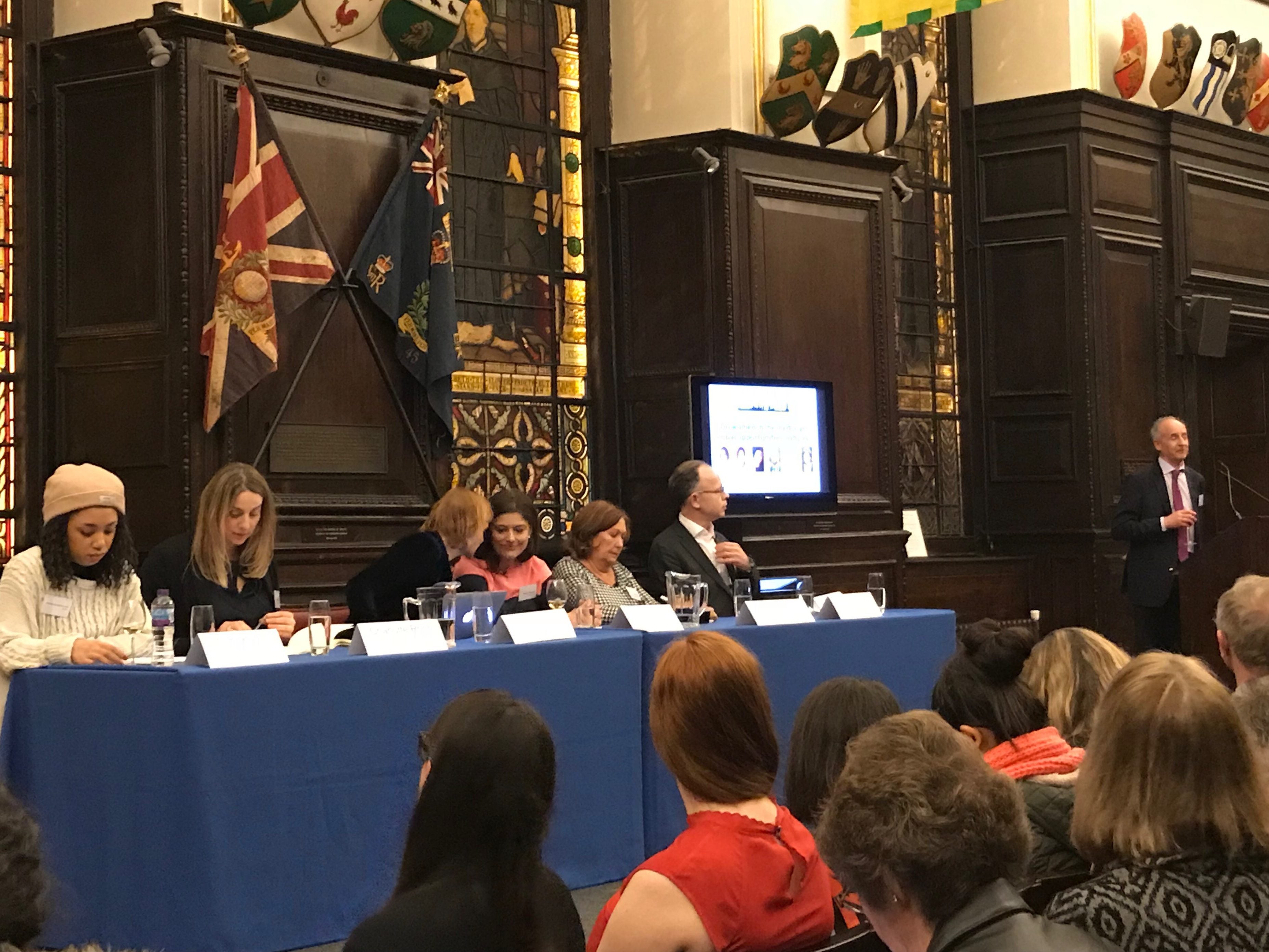
Evening Standard deputy editor Charlotte Ross said that “right now is a very good time to be a woman in journalism” at a debate discussing equal opportunities and pay for women in the media.
Ross told a packed Stationer’s Hall in London last night that things were also “good at the moment” when it came to equal opportunities for women.
She was speaking as part of a five-strong panel of journalists on the topic of “Do women have equal opportunities and pay?” hosted by the London Press Club.
Said Ross: “Right now, it’s a very good time to be an ambitious and talented woman in journalism. That’s what everyone is looking for in any job that comes up. We are actively seeking out women at every opportunity.”
But, she added: “There’s a lot of work to be done.”
Sue Ryan, head of training at the Mail Publishing Group, said there were “usually more women than men coming in” to journalism in her intake of 60-70 trainees, but noted the lack of women in senior editorial roles across the media.
“What happens in the industry I’m not quite sure,” she said. “There are probably only two conclusions and I don’t like either of them: one, a huge male conspiracy, or two that women are just not assertive enough at looking after themselves.”
She added later that “being a women actually helps you get a senior position”, explaining: “Newsrooms really want senior women… I know that any person of colour and any woman immediately go to the head of the queue because they are looking for the newsroom to be more diverse.”
But she said newsrooms had been “slow” to diversify.
Ross said that at the Evening Standard, more women were being employed in entry level jobs than men across the board.
But, she said: “In my experience it’s harder for women to get pay rises once they are in a job. I think they have to fight harder. I think there’s a reluctance to put themselves forward and talk about their professional value and self-worth.
“It’s a very difficult thing for people generally, but for women in particular. I think there’s an unconscious bias against giving women more money. It’s moving now, but in the past we have had to fight much harder.”
She added: “There’s a lot of work to be done beyond getting talented women getting into newspapers.”
Charlie Binkhurst-Cuff, deputy editor at women’s online magazine Gal-Dem and Guardian columnist, said : “When you look around rooms like this and you see the lack of women of colour in journalism it makes you feel very sad.”
She said opportunities were “quite limited” in the news industry for “working class women of colour”.
She also said that before applying for a potential newsroom role she would first think: “Does that paper publish racist content?” and that certain stories can put off potential job candidates applying to newspapers.
“If you come from an ethnic background, that situation becomes a lot harder to deal with,” she added.
Appearing as the only man on the panel, which was chaired by Economist senior editor Anne McIlvoy, Society of Editors president Ian MacGregor said the news industry needs “structural and cultural change” around equality.
MacGregor, also editor emeritus at the Telegraph, said the paper had just hired ten apprentices using “blind” CVs – meaning their age, race, gender and background were unknown to recruiters.
Although acknowledging the Telegraph “still had more to do” in terms of newsroom equality, he pointed to a number of senior women heading up desks and writing leading columns in the paper.
He said: “I think we need to go further than we have discussed already and I think, speaking personally, we actually need structural and cultural change – and I don’t say that lightly –and we really need to think about what we can do and constantly evolve.”
He added: “There are a whole series of issues and problems here. I genuinely think it’s very important for men to speak up for women and diversity in journalism. I think we all haven’t done enough and I think it’s important not to pay lip service, but to say that it is the 21st Century and the world has moved on.”
Lawyer Miriam Gonzales, founder of Inspiring Girls admitted to becoming “sick and tired” of a career trying to change things through networking and mentoring, saying: “What we are doing with so many very well-meant initiatives is dressing up the lack of action.”
She said “The main, difference is that men are now speaking out with women”, adding that “what was missing is equality in the home”.
Asked what advice they had for women in the industry facing challenges of equal pay and inequality, Gonzales said journalists had the power to “shape” the media and stop its telling women they had to “look after the home” and follow other gender sterotypes.
Ross said journalists should work to make themselves “indispensable” to the newsroom and also “fight for flexibility” in working hours if and when they have children.
She told the 180-strong audience that “these conversations need to be had in the industry”, but reassured them that “they are being had”.
Email pged@pressgazette.co.uk to point out mistakes, provide story tips or send in a letter for publication on our "Letters Page" blog
